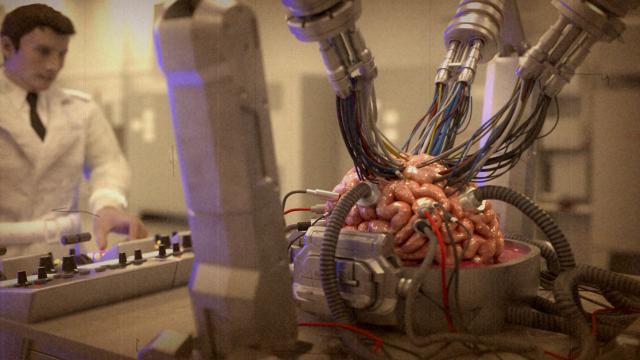If you’re familiar with the work of documentary filmmaker Rodney Ascher — The S From Hell, Room 237, The Nightmare — you know he excels at focusing on topics that stir up excitement and existential dread all at the same time. His latest, A Glitch in the Matrix, probes simulation theory with similar intent.
Much like The Nightmare, which explored the terrifying world of sleep paralysis, A Glitch in the Matrix is about something that technology can’t be visualised, because much like someone else’s dream it’s impossible to see. However, there are obviously dozens of pop culture works (especially the 1999 sci-fi blockbuster that gives an assist to the doc’s title) that help flesh out Ascher’s journey through the notion that maybe, just maybe, reality isn’t what it seems to be. And even if you think the idea that we’re all living in a simulation is outright ridiculous, A Glitch in the Matrix strives to explain why some people have come to believe it’s possible, as well as the social and historical context that makes the idea even more compelling, if not convincing.
Ascher taps into his trademark mix of interviews with experts — including University of Oxford professor Nick Bostrom, who’s written extensively about simulation theory — and regular folks, just people who have stories to share about their own personal experiences. Since A Glitch in the Matrix was created during the pandemic, it relies heavily on Zoom-style interviews, and all of the “regular folks” interviewees who appear on camera use avatars, which adds a certain amount of levity while underlining the theme that what our eyes are seeing might not necessarily reflect the truth.
Much of the film is structured around an iconic speech Philip K. Dick gave in 1977, in which the famed author of The Man in the High Castle, A Scanner Darkly, and Do Androids Dream of Electric Sheep? broke down his personal suspicions about why we might be living in a digitally created world; we also see how those beliefs influenced his writing, which in turn influenced sci-fi entertainment on the big and small screens. There’s a fair amount of video-game discussion, particularly around the idea that some people are actually “player characters” walking among all the unenlightened masses and Elon Musk isn’t interviewed directly, but he pops up a lot. The film also detours into history and things like the Mandela Effect, which some take to be an indicator of memories from alternate realities.
But despite being broken down into a series of chapters, the movie rambles a bit, especially when it comes to the personal stories. Some of them are amusing at least, but a tangent involving a young man whose fixation on The Matrix inspired him to commit a terrible crime doesn’t quite fit in with the rest of the story. At worst, it feels a bit like an act-three attempt to inject a little more real-world consequence into a story that’s otherwise solely theoretical — at least until (if and when) we realise we’ve been wrong all along and it’s time to wake up.
A Glitch in the Matrix premiered at the 2021 Sundance Film Festival and opens in theatres and on-demand today.
